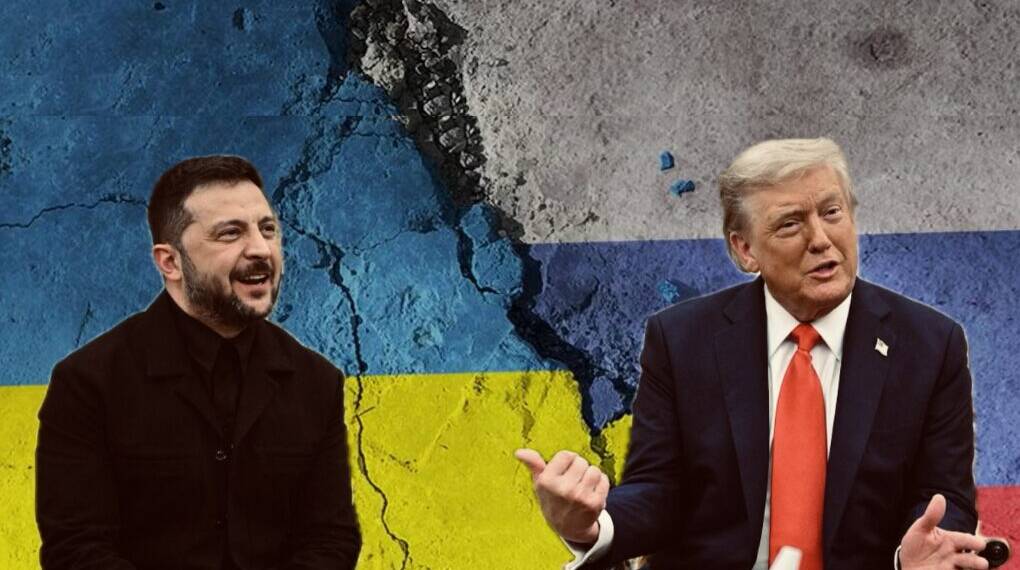Ukrainian President Volodymyr Zelenskyy’s recent meeting in Washington with US President Donald Trump and several top European Union leaders signals a pivotal moment in the international response to the ongoing war in Ukraine. The gathering, which drew diplomatic heavyweights including the presidents and prime ministers of France, Germany, the UK, and the European Commission, was organized to project a unified Western front amid intensifying pressure from Moscow and deepening uncertainty regarding US policy commitments.
Zelenskyy-Trump Encounter After Oval Office in February
This time Zelenskyy’s meeting with Trump seemed more successful than his encounter with him in the Oval Office in February, where Trump and JD Vance trounced him for not being grateful enough.
Zelenskyy even had his EU allies this time, with leaders from around Europe travelling to Washington on short notice to display camaraderie with Kyiv and push for strong security guarantees for the country in any post-war settlement.
Trump greeted Zelenskyy warmly on his arrival outside the White House, expressing appreciation for his black suit – an attire different from the Ukrainian leader’s typical military clothes, which according to media reports had irritated Trump in February.
The Importance of Western Unity
The presence of EU leaders alongside Zelenskyy is a clear demonstration of Europe’s commitment to upholding Ukrainian sovereignty and resisting Russian aggression. For Zelenskyy, having allies physically by his side was intended to show Trump—and the world—that the issue of Ukraine transcends national interests and concerns the security architecture of the entire continent.
Security Guarantees and Peace Prospects
One of the central topics discussed was the exploration of NATO-like security guarantees for Ukraine as an alternative to formal alliance membership. European officials, many of whom were excluded from Trump’s earlier direct talks with Putin, argued that only robust and credible guarantees could deter renewed Russian escalation. The complexity of forging such agreements, however, was evident, as divergent views emerged not just between the US and Ukraine, but among European partners as well.

Trump did offer optimism on US involvement in helping guarantee Ukraine’s future security. He said: “When it comes to security, there’s going to be a lot of help”, even if European countries need to be “a first line of defence”. Later, Trump said in a post that these guarantees would be “coordinated” with the US. Zelenskyy defined security guarantees as “a key issue, a starting point towards ending the war” and commended Trump’s indication that the US was ready to be part of that guarantee.
Boost for US Arms Industry?
In a significant development, Zelenskyy revealed that Ukraine has offered to purchase $90 billion worth of American weapons as part of broader negotiations around post-war security guarantees. The statement comes as several European countries have already confirmed multi-billion-dollar arms deals with the US to support Ukraine’s defence, including acquisitions of advanced systems such as the Patriot missile defence system.
Zelensky also added that the US would also buy into Ukraine’s drone program, an area in which it has made significant strides since Russia’s full-scale invasion began. Earlier, the Financial Times reported that the drone deal was worth $50bn.
A Zelenskyy and Putin Meeting on the Cards?
Donald Trump said after the White House talks: “I called President Putin, and began the arrangements for a meeting, at a location to be determined, between President Putin and President Zelenskyy. After that meeting takes place, we will have a Trilat, which would be the two Presidents, plus myself.”
According to German chancellor Friedrich Merz, Putin told Trump in a call during Monday’s White House meeting that he was ready to meet Zelenskyy “within the next two weeks”. For his part, Zelenskyy reiterated on Monday that he was ready for talks with Putin.
Although, a bilateral meeting between Zelenskyy and Putin is something the Russian president has always opposed, insisting for a list of preconditions to be met first, but the possibility may soon turn into reality. So far, Kremlin aide Yuri Ushakov has said only that Putin was open to the “idea” of such direct talks.
A Crossroads for Western Strategy
This summit also tested the strength of transatlantic relations. Europe’s readiness to support Kyiv—even while adapting to a US administration that signaled a reduced appetite for direct confrontation with Russia—highlighted both the power and the limits of Western unity. The joint appearance and public statements masked ongoing anxiety about whether practical support and sanctions would remain as strong in the months ahead.
While the photo ops and statements conveyed resolve, the real challenge lies in reconciling differing approaches to security, diplomacy, and the ultimate terms of any peace with Russia. The summit made clear that the outcome of the Ukraine war will profoundly impact not only the future of Ukraine but the broader stability and principles that underpin the Western alliance.








